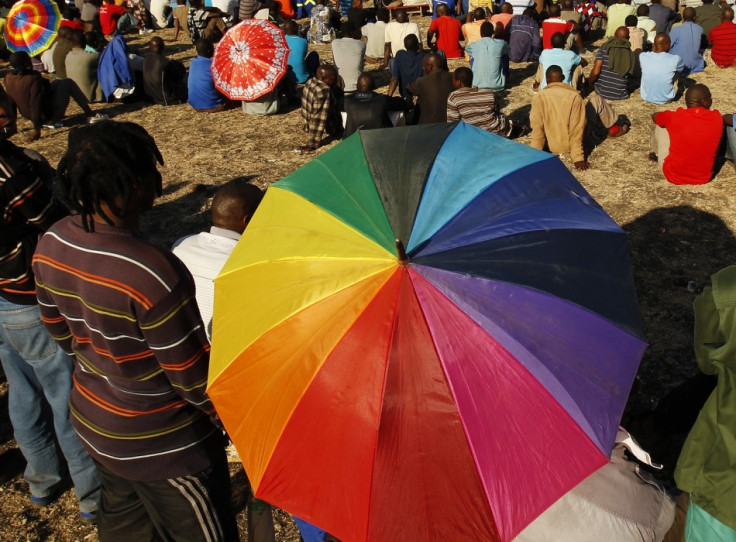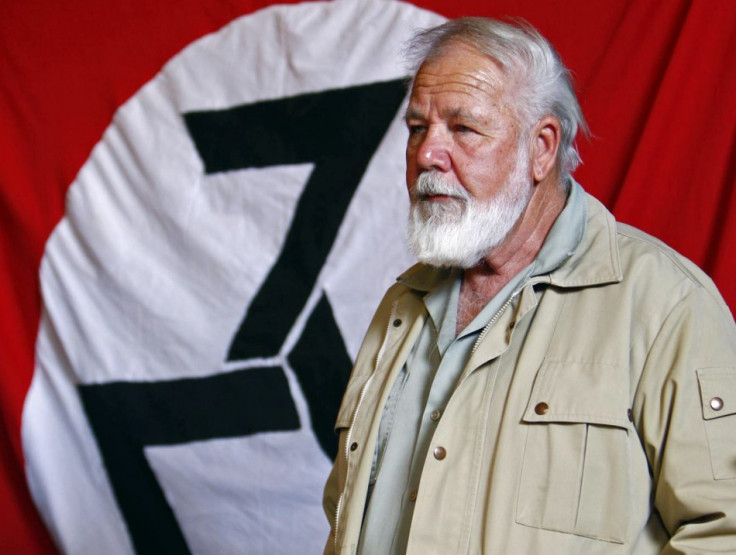Fatherland Documentary Exposes Kommandokorps White Paramilitary Boot Camps in South Africa
Franz Jooste's rightwing paramilitary unit shows Nelson Mandela's dream of creating Rainbow Nation still has long way to go

You don't have to look too far beneath the surface in South Africa to find that Nelson Mandela's notion of creating a Rainbow Nation has yet to lead to that elusive pot of gold - racial integration.
In the month that the film of Madiba's autobiography, Long Walk to Freedom, is due to hit the country's cinemas, an altogether more disturbing film, Fatherland, has also made a controversial appearance.
Fatherland is a documentary about the activities of an extreme rightwing Afrikaner paramilitary training organisation called the Kommandokorps (KK).
It made its debut at the Bioscope Independent Cinema in Johannesburg and according to producer Tarryn Lee Crossman a deal has been signed with Channel 4 to air a shortened version.
The little-known KK, which has been around in one form or another for 20 years, is led by self-styled "Colonel" Franz Jooste. It runs four boot camps a year for boys aged 13 to 19 near Rustenberg.
Jooste earned his military spurs serving in the South African army during the apartheid era and is a veteran of the brutal wars fought on the country's borders with Rhodesia (now Zimbabwe) and Mozambique during the 1970s.
But he was also one of the instructors to train the elite Ystergarde (Iron Guard) unit of murdered Eugene Terre'Blanche's white supremacist Afrikaner Weerstaandsbeweging (or AWB - Afrikaner Resistance Movement) during the 80s.
As to the KK's goal, Jooste told eNews Channel Africa's Africa 360 programme that it was primarily one of self-defence to protect vulnerable rural Afrikaner communities from ongoing "farm murders".
These murders, Jooste claimed, have resulted in the deaths of 2,000 white farmers since the fall of apartheid in 1994 and amount to a "definite genocide committed on our people" by the black community.
As a result, according to the Afrikaner Journal blog the KK signed a cooperation pact with the like-minded AWB and Suidlanders in August 2011 to "coordinate our security strategy to protect our own people once the black revolution starts".

Minority views
The "black revolution" in question appears to refer to the prophecies of the Boer prophet Siener van Rensberg, who predicted that, when Nelson Mandela dies, there will be a "night of the long knives" against the white population.
Such fears also form part of the core beliefs of the somewhat shadowy Suidlanders (Southern Countrymen) which have, in turn, been linked with the Boeremag (Farmer's Power).
The latter's members were convicted of and jailed for high treason only a few weeks ago for plotting to overthrow the ANC government and assassinate Nelson Mandela.
Although Jooste denied that the KK had been set up for anything other than self-defence purposes, he did echo the Suidlanders' aim of wanting to create a separate Boer nation on South African soil.
While claiming to represent the views of a million Afrikaners (out of a total three million), he called on the ANC "to do what we did to you in the 1970s and 80s - give us a homeland, our own land where we can be independent".
Presumably dedicated Afrikaner settlements such as Orania in the Northern Cape and Kleinfontein, near Pretoria, are no longer enough.
But, while all of this may make it appear that the entire Afrikaner community is an unreconstructed hotbed of right-wing extremism, the reality is very different.
As Dr Piet Croucamp, an Afrikaner political analyst at the University of Johannesburg, pointed out on the Africa 360 programme: "There is no evidence that these militarised views represent one million Afrikaners. What the data probably will find is that it's a very small group of people."
As in any community, opinions are inevitably mixed. In post-apartheid South Africa, these range from those who cling to the past and refer to the ruling party as "their [ie black people's] government" to those who are doing all kinds of good works to try to combat injustice and inequality.
But no matter what the political stripe, there is a general recognition of just how vulnerable many white farmers feel.
Not only are they concerned that the government could turf them off their land a la Zimbabwe, but terrifying stories abound of people being surrounded and robbed by vigilantes who turn up in the middle of the night in trucks with AK47s in their hands.
Siege mentality
One of the problems is the sheer size of these farms, which makes them very difficult for farmers to protect against the actions of those less well-off than themselves, either alone or with the help of a police force that simply does not have the resources.
Elsewhere, meanwhile, you hear unhappy tales of the impact of the country's positive discrimination and Black Economic Empowerment policies, which some feel are racist against white communities and prevent an equal chance.
This despite the fact that, according to the South African Institute for Race Relations, white workers' monthly earnings are still four times higher than those of the average black person.
Such negative perceptions among many white people inevitably lead to feelings of being unwanted and not having a place in the new South Africa. That generates a siege mentality.
And while many Afrikaners feel that they will never be forgiven for the injustices of apartheid, they also fear that their history, language and way of life is in danger of being eradicated.
But as Croucamp points out, it is not just white communities that feel anxious about what is happening in the country.
"The main problem of white South Africans is bad service delivery and corruption and crime," he said. "But if we look at the black populations, you know what's their main concern? It's bad service delivery, corruption and crime."
Although "not one of those who tries to sell the idea of the Rainbow Nation", Croucamp believes there is "slowly growing consensus and compromise in South Africa" among people of all colours and creeds.
Anecdotally at least, change is starting to occur. While even 10 years ago, it was rare to see mixed-race couples or groups of friends out and about together, the "Born Free" generation - children born after 1994 - appear to be more colour-blind than its forebears.
And as the emerging black middle class continues to grow in stature, it seems that societal divides are gradually becoming based less on race and more on personal wealth.
Despite all of this, there is some concern among the Afrikaner community that the film Fatherland will fall foul of a sensationalist media. The fear is that Crossman will not succeed in her aim of provoking debate on the sensitive issue of racial identity but simply reopen old wounds.
As one individual put it, the problem is that, if people see suicide bombers on TV blowing themselves up, they tend to think that "all Muslims are like that". In reality, of course, it's only a tiny minority.
© Copyright IBTimes 2024. All rights reserved.






















